




| Griffon Vulture (Gyps fulvus (Hablitz, 1783)) |





|
|
Scientific name: Gyps fulvus (Hablitz, 1783) Common name: Griffon Vulture French name: Vautour fauve Order: Accipitriformes Family: Accipitridae Size: Body size: 95 to 110 cm; Weight: 6.5 to 11,5kg; Wingspan: 2.35 to 2.70m. Habitat: Mountain cliffs, desert and hilly areas. Food: The Griffon Vulture is a scavenger that feeds on the soft flesh of carrions, leaving harder parts and bones to other species such as the Cinereous Vulture or Bearded Vulture. Nesting: Griffon Vultures nest in colonies. The nest, made of twigs, is about 1 meter in diameter. Females lay a single egg in January or February. The young bird will take off in July-August. Migration: Adults are sedentary. Juveniles are partially migratory to North Africa, Mali, Chad, Senegal and Niger. Geographic area: From the Iberian Peninsula to the mountains of Central Asia. |
The Griffon Vulture's plumage is buff brown on the upper side and tawny brown to red on the underside. The head is covered with white down. The neck is quite long and separated from the body by a ruffle of bristly white or light brown feathers. The hooked bill is whitish. The remiges are dark brown. Griffon Vultures can fly hundreds of kilometres by hovering using thermal updrafts. The Cinereous Vulture (Aegypius monachus) is darker in colour, with wider wings showing a straight forward edge in flight. The forward edge of the Griffon Vulture's wings is clearly curved in flight. |
| [To know more about the Griffon Vulture] [Next picture] [Top] |
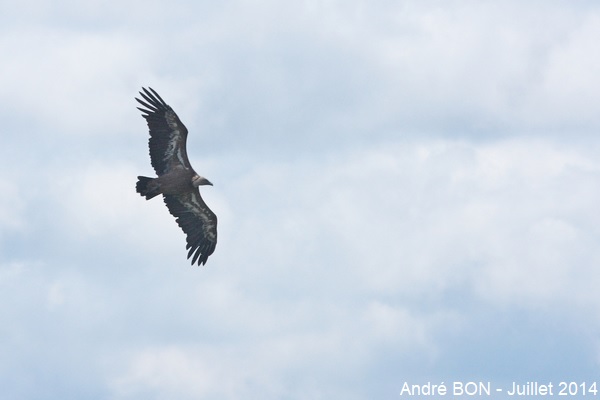
|
This Griffon Vulture passed in flight in front of me while I was hiking in the beautiful Gorges du Tarn canyon. The non-straight forward edge of the wings confirms the species identification. Griffon Vultures have been re-introduced into the cliffs of the Gorges de la Jonte, not far from here. I need now to approach a colony to shoot better pictures. |
| [To know more about the Griffon Vulture] [Next picture] [Previous picture] [Top] |
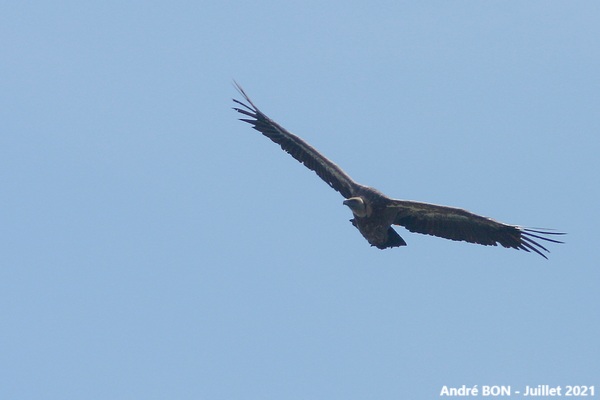
|
The summit of La Rhune offers a magnificent panorama but also allows you to see Griffon Vultures in flight. |
| [To know more about the Griffon Vulture] [Next picture] [Previous picture] [Top] |
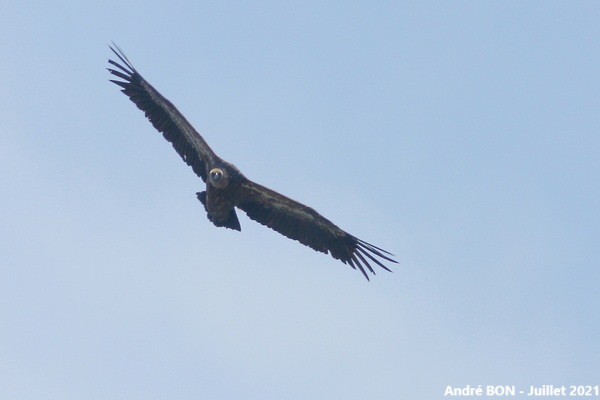
|
I think that to progress on photos of birds in flight I need to upgrade to more recent photographic equipment. |
| [To know more about the Griffon Vulture] [Next picture] [Previous picture] [Top] |
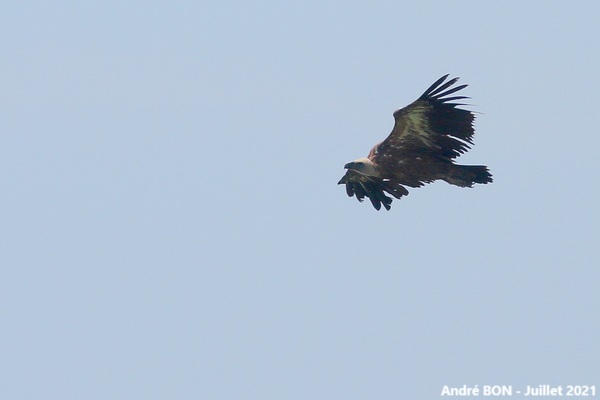
|
This specimen seemed to me to have somewhat damaged plumage. |
| [To know more about the Griffon Vulture] [Previous picture] [Top] |
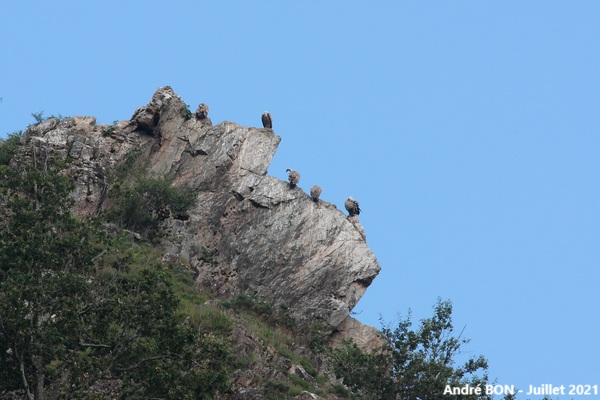
|
It was during a hike to see the Pas de Rolland on the banks of the Nive that we saw this group of Griffon Vultures resting on a rock. |